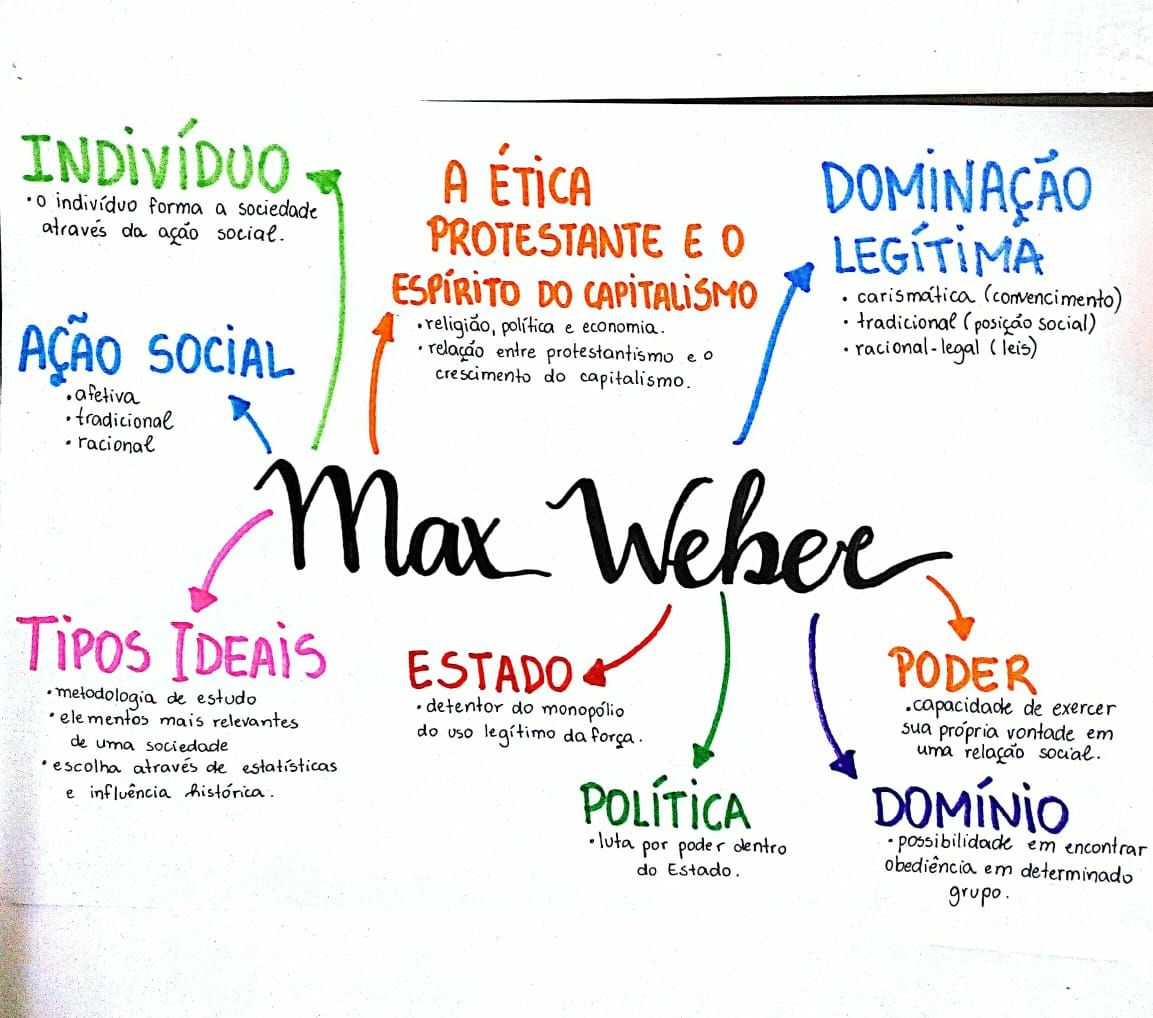Have you ever stopped to think about the intricate tapestry of modern society – its rules, institutions, and power dynamics? What drives the relentless hustle of our daily lives, the pursuit of wealth, and the constant yearning for control? For Max Weber, one of the most influential sociologists of the 20th century, the answer lies in the complex interplay of rationalization, bureaucracy, and the relentless pursuit of power. His work, a blend of profound insight and critical observation, continues to shape our understanding of the modern world, urging us to question the very foundations of our existence.

Image: www.studocu.com
Weber’s theories aren’t just academic exercises; they offer a lens through which we can better navigate our own lives and the intricate social structures we inhabit. They challenge us to examine our own motivations, the power dynamics we participate in, and the very meaning we attribute to our own existence. Weber’s ideas are not just for academics; they are for anyone who seeks a deeper understanding of the world around them, a world that often feels chaotic and increasingly complex.
Unraveling the Web of Rationality
At the heart of Weber’s work lies the concept of rationalization, a process that has reshaped our societies from the ground up. This isn’t just about logic and reason; it’s about a shift towards a world dominated by efficiency, calculability, and the relentless pursuit of predictable outcomes. Traditional values, once the bedrock of society, are gradually replaced by the cold logic of the “iron cage” – a system of rules, regulations, and bureaucracies that dictates every aspect of our lives.
Weber observed this shift most vividly in the rise of bureaucracy, the complex system of hierarchical organizations designed to optimize efficiency and control. Think of your local government, your university, or even the company where you work. These are all examples of bureaucracies, governed by codified rules, specialized roles, and impersonal structures. While seemingly essential for the smooth functioning of large organizations, Weber warned of the consequences of this rationalization. He saw a world where human creativity, individual agency, and the pursuit of meaning were gradually being squeezed out by the relentless machine of calculated efficiency.
Power and the Pursuit of Meaning
Weber also delved into the complexities of power, exploring its different forms and the motivations behind its pursuit. He famously defined power as the ability to enforce one’s will even against resistance, a concept that goes far beyond mere political authority. Power can be found in social institutions, economic structures, and even in the realm of ideas and beliefs.
Weber’s most influential concept, “ideal types”, offered a framework to understand these diverse forms of power. For example, “traditional authority” derived its legitimacy from custom and tradition (like a hereditary monarchy), while “charismatic authority” was based on the extraordinary qualities of an individual (think of a charismatic revolutionary leader). “Legal-rational authority” arose from the codified rules and procedures of modern bureaucratic societies, where individuals are subject to the laws of the state, not the will of a person.
The Iron Cage and the Search for Meaning
Weber’s writings were infused with a sense of melancholy and a profound understanding of the human condition. He saw the modern world as a double-edged sword, offering unprecedented progress but simultaneously threatening to ensnare us in an iron cage of our own making. He believed that disenchantment – a feeling of meaninglessness and alienation – was a consequence of the relentless rationalization of society.
In a world increasingly driven by efficiency and control, Weber argued, the search for meaning and purpose became more challenging. The human spirit, he believed, craved something more than just a comfortable routine. He was concerned about the dehumanizing aspects of modern life, where individuals might be reduced to mere cogs in the machine of economic production, their individual values and aspirations sacrificed at the altar of efficiency.

Image: www.vrogue.co
The Legacy of Max Weber
Max Weber’s ideas have left an enduring mark on the social sciences and continue to influence our understanding of the modern world. His insightful observations about the impact of rationalization, bureaucracy, and the pursuit of power serve as a timeless reminder of the complexities of human society.
His work also challenges us to think critically about the structures that shape our lives, the impact of technology on human relationships, and the meaning we attribute to our own existence. In a world increasingly driven by technology and the relentless pursuit of progress, understanding the legacy of Max Weber helps us navigate the treacherous waters of the modern age and find meaning in a world that often feels increasingly complex and uncertain.
Embrace the Power of Understanding: How to Apply Weber’s Insights
So, how can you apply Weber’s theories to your own life? Here are a few key takeaways:
- Become a Critical Observer: Pay attention to the bureaucratic structures you interact with daily. How do they impact your behavior and decisions?
- Question your Motivations: What drives your own actions? Are you pursuing efficiency, power, or a more meaningful purpose?
- Seek Meaning Beyond the Machine: Explore your own passions, engage in activities that bring you joy and purpose, and resist the urge to be solely defined by your professional achievements.
Max Weber Main Ideas
Beyond the Iron Cage: A Call to Action
Ultimately, Weber’s writings provide us with a valuable lens for understanding our world, but they also inspire us to push back against the forces of disenchantment. By understanding the influence of rationalization, we can embrace the power of critical thinking, seek meaning in our own lives, and strive to create a more humanized, just, and meaningful society for all. This is not just an academic exercise; it’s a call to action, a call to reclaim the power of individuality and purpose in a world dominated by the iron cage of modernity.






